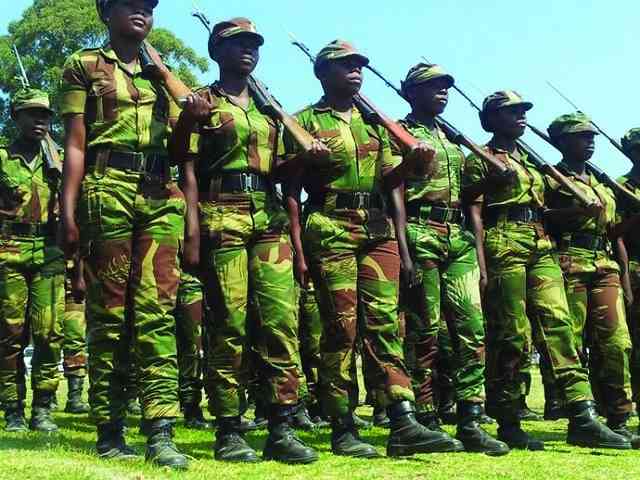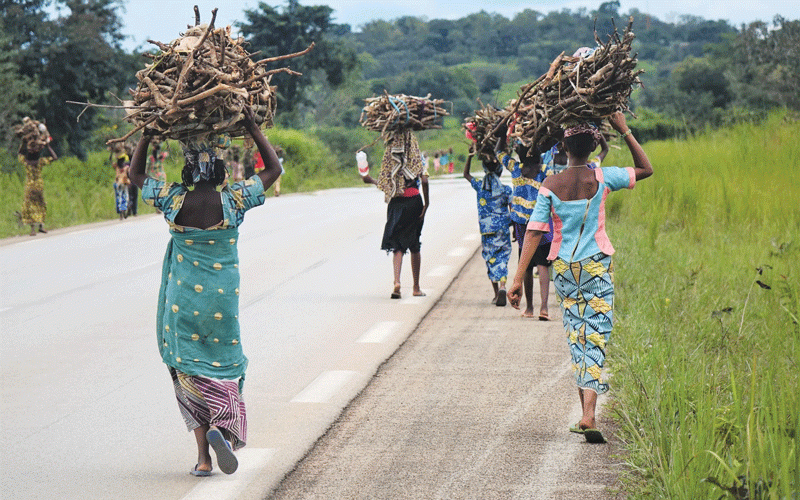
AS a proud Zimbabwean woman, I have borne witness to the profound impact of militarisation on our society.
For far too long, the Zimbabwean military has been seen as a bastion of masculinity, a domain where women were relegated to the side-lines or confined to support roles.
But on this World Peacekeepers Day; May 29, I urge us to challenge this outdated paradigm and envision a future where the Zimbabwean military is truly “fit for the future” — one that embraces the diverse perspectives and talents of women, and places their safety and empowerment at the forefront of its mission.
Our nation has grappled with the legacy of conflict and political upheaval, and in the face of these challenges, our military has played a crucial role in maintaining stability and safeguarding our sovereignty. Yet, the composition of this esteemed institution has remained largely skewed towards men, with women often facing systemic barriers to accessing specialised training, leadership opportunities, and combat roles.
This gender imbalance not only perpetuates harmful stereotypes, but also deprives the Zimbabwean military of the immense value that women can bring to the table.
Studies have shown that gender-diverse teams in the military are more effective in conflict resolution, peacekeeping operations, and fostering community relations.
By tapping into the unique perspectives and strengths of women, we can create a more adaptable, resilient, and innovative military — one that is truly “fit for the future.”
Empowering women within the military is only one piece of the puzzle. To truly create a safer and more secure Zimbabwe, we must also address the broader issue of violence against women — a pervasive problem that has plagued our country for far too long.
- China-backed controversial mega project in Myanmar rapidly becoming human trafficking hub
- Uganda removes president's son from army role after Kenya invasion tweets
- African Union commission head condemns Chad clashes.
- The next Ukrainian offensive
Keep Reading
Too often, women in Zimbabwe have been subjected to alarming rates of domestic abuse, sexual assault, and gender-based violence. These horrific acts not only rob us of our dignity and autonomy, but also undermine our sense of security and well-being, hindering our ability to fully participate in and contribute to our society.
As a Zimbabwean woman, I have borne witness to the immense pain and trauma experienced by my sisters, and I refuse to remain silent. We must confront this crisis head-on, and commit to building a future where women can live, work, and thrive without fear of violence or oppression.
One crucial step in this direction is to reform and strengthen our military's approach to protecting and serving women. This means not only increasing the representation of women within the ranks, but also ensuring that our armed forces are equipped with the training, resources, and mandate to effectively prevent and respond to gender-based violence.
Through rigorous education programmes, specialised units dedicated to investigating and prosecuting crimes against women, and the implementation of robust reporting and accountability mechanisms, the Zimbabwean military can play a pivotal role in creating a safer and more secure environment for all.
Moreover, we must foster a culture of respect, empathy, and zero tolerance for violence within the military itself.
By addressing and rooting out instances of discrimination, harassment, and abuse, we can send a clear message that the safety and well-being of women is a non-negotiable priority, and that the military is committed to being a force for positive change.
The onus for building a safer Zimbabwe cannot rest solely on the shoulders of the military. It is a collective responsibility that must be embraced by all sectors of our society - from the government and civil society organizations to the media and community leaders.
Through comprehensive, multi-faceted approaches that address the root causes of gender-based violence, we can empower women to reclaim their rightful place in our society, and create a future where they can thrive without fear or limitation.
This might include strengthening legal protections for women, expanding access to education and economic opportunities, and challenging harmful cultural norms and stereotypes that perpetuate the cycle of abuse.
By investing in the holistic well-being and empowerment of women, we can ensure that they are not just “fit for the future,” but actively shaping it.
As we commemorate World Peacekeepers Day 2024, let us reflect on the crucial role that the military plays in safeguarding our nation's security and prosperity.
And let us recognise that true security cannot be achieved without the full inclusion and empowerment of women. By building a more diverse, inclusive, and women-centred Zimbabwean military, we can not only honour the legacy of our past peacekeepers, but also pave the way for a future where women are celebrated as indispensable contributors to our nation's success.
Together, let us embrace the theme of "Fit for the future, building better together" and work towards a Zimbabwe where women are safe, empowered, and free to pursue their dreams without fear or limitation.
Only then can we truly create a more just, peaceful, and equitable society for all. Until then, we are blessed to be a blessing (#B2BAB).
We were here, becoming better, making our mark, and leaving our footprint as we make the world a better place!
- Chirenje writes in her capacity as a citizen of Zimbabwe. Follow her on social media for more Lifezone with Grace conversations on Twitter: @graceruvimbo; Facebook: Grace Ruvimbo Chirenje; Instagram: @graceruvimbo











